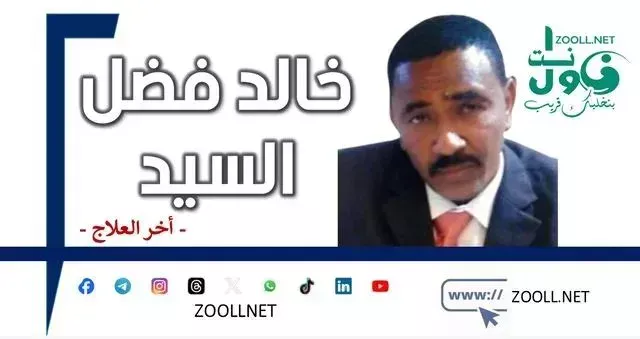His Majesty in the presence of the Sultan – the last treatment – ✍️ Khaled Fadl Al-Sayyid

We sat in front of the screen to watch the meeting that took place between media professionals and the head of the Sovereignty Council, Lieutenant General Abdel Fattah Al-Burhan, to learn about the results and indicators that emerged from it, which was attended by a large number of media colleagues from all categories in the city of Port Sudan, and it was a generous initiative of the chairman of the General Union of Sudanese Journalists, Mr. Al-Sadiq Al-Ruzaiqi.
We were delighted to have this great opportunity to discuss media issues so that the vision is clear for media professionals, whether through the projects presented on this subject or through the questions asked live.
We hoped through this meeting to find many answers to the questions that are troubling media professionals in light of this war, in which media professionals have endured severe suffering, and most of them have been scattered and displaced in the states, and some have left the profession and taken up other jobs to support their families in light of the outrageous and high prices that the country is going through, and its effects have affected them as expatriates in the states.
This meeting was also considered a rare opportunity for the government to take advantage of it to discuss media issues and the current situation of the media and its problems, to develop solutions and treatments, and to try to move it forward to face the challenges of the current and upcoming scene in light of the presence of expertise, skills and specialists among media professionals of all media affiliations.
But unfortunately, the meeting was ordinary and did not address the fundamental issues that concern the media and media professionals. We expected it to be exceptional, especially since it took place with the tribe of media professionals who, despite their circumstances and suffering, responded forcefully to the rebellion's media and its agents from the pens paid internally and externally.
National media professionals were at the forefront of this crucial battle. They were active on different websites, through groups and social media platforms, and responded forcefully to the media of the rebellion and the countries that supported it, which attacked the armed forces. the armed forces, the security services and the popular resistance, which were an obsession for the countries supporting the rebel militias and the motivation of loyal media professionals. It was therefore love of the homeland and patriotism that they supported this misguided rebellion. as an impenetrable barrier preventing the spread of its poison among citizens, they were therefore an antidote and spoiled all its content by responding to it forcefully, which helped to repel electronic attacks and their failure.
This meeting did not yield particularly promising results for the segment of media professionals, and we would have liked the General Union of Journalists to consider this as a rare opportunity in these times and address the situation of journalists and media professionals in light of their suffering in this war that forced them and their families to flee to the States, as well as to develop treatments and future visions for the situation of media professionals and journalists at a given time of the war.
After the newspapers were shut down, their headquarters were demolished, printing presses were looted and stolen, television channels and satellite were shut down, alternatives were found for them, especially since most of them were supporting their families. This came as the war was coming to an end. the advance of the armed forces in the various theatres and battle fronts, and victory was only a matter of time.
There are many questions related to the work of the media in the country for which we have not found answers. So it was an opportunity for media professionals to get some air out of their chests through questions that only the President of the Sovereignty Council can answer. se.
Our surprise was also when the requests of journalists and media professionals were limited to only three questions, which, despite their number, were not broadcast on television. Given the urgency and haste of this important meeting with the media, which could have served as a media platform and a rare opportunity for the government to clarify many new and exciting news that everyone is waiting for, to answer the questions that concern the media and citizens of the country and abroad, but the meeting unfortunately did not bring anything new, and all that was presented was about the negotiations. The current situation was mentioned in the government's media platform, which made us think that this meeting, in this form. and urgency, is only a matter of appeasement and not embarrassing the General Union of Sudanese Journalists, which initiated the initiative, and it is also considered a message.





